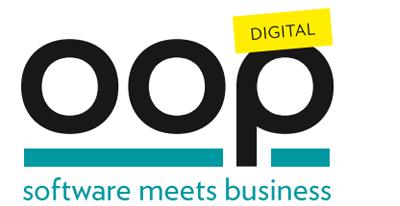Please note:
On this page you will only see the English-language presentations of the conference. You can find all conference sessions, including the German speaking ones, here.
The times given in the conference program of OOP 2023 Digital correspond to Central European Time (CET).
By clicking on "VORTRAG MERKEN" within the lecture descriptions you can arrange your own schedule. You can view your schedule at any time using the icon in the upper right corner.
Track: Signature Track: Finding the Right Balance
- Mittwoch
08.02. - Donnerstag
09.02.
How much design is enough design? How much is overdesign? When does — or should — design happen? How big is 'design'?
Anyone who has ever looked at the methodology landscape or has juggled different roles in software development — programmer, architect, coach, therapist, code paramedic, politician — knows that there are many answers to these questions, and they often contradict one another.
In this talk, we will consider different scales and time frames of design in software, bringing some…
Unfortunately, this presentation has to be cancelled at short notice for personal reasons.
Traditional (i.e. hands-off, blessed-few) approaches to architecture rarely (if ever) work. But in the world of microservices, autonomous teams, and continuous delivery, architecture is more important than ever. Is there an alternative?
Target Audience: Architecture Practitioners (Architects, Lead Developers, etc.)
Prerequisites: Experience delivering software architecture
Level: Advanced
Extended…
The cloud has fundamentally changed how we design applications and introduced whole new categories of software-development disasters. With a focus on Java, this talk will introduce some of the new tools, patterns, and best practices for modern distributed application development. It also gives a tour of some of the most painful anti-patterns Holly has seen as a cloud consultant.
Target Audience: Architects, Developers, Strategic Decision Makers
Prerequisites: Basic experience of cloud computing,…
Green software engineering is an emerging discipline and being a part of the climate change solution is a relatively new part of many software companies' strategy. For some of us, building resource efficient solutions is something we have already done for a long time, but we called it performance work. Where do the two meet and when are they different? This talk introduces the field of green software engineering and explains where it intersects with performance optimizations, giving you the…
In 2022, is having a dedicated software architect still useful, or are there better ways to fulfil this role? The answer, as usual, is "it depends”.
Target Audience: Software Developers and Architects
Prerequisites: None
Level: Advanced
Extended Abstract:
Traditional approaches to software architecture usually trigger thoughts of ivory tower dictators who are a long way removed from the process of building software, probably because they no longer write code anymore. This unfortunate stereotype…
You know the story, one dev in the team found out about this amazing new framework which will solve potentially aaaall your problems; but the product owner stops him right away. There is definitely no time until the next roadmap milestone is reached and you’re already late. We have introduced the tool Tech Radar – in two different organisational setups – to make technology strategy explicit.
In this talk I’ll share our learnings on how we made sure our teams don’t drown in legacy, train them on…
Artificial Intelligence (AI) and its sub-domain, Machine Learning (ML), have been developing quickly. Your organization could be planning for or be in the middle of an AI transformation.
In this talk, I will speak from my own experience managing the strategy and delivery for AI/ML programs and discuss practical steps for the executive leadership to ensure the success of their AI strategy and delivery.
Target Audience: Project Leaders, IT Leaders, Executives, Decision Makers
Prerequisites: None
…
When you want to make a change, the skeptics are lying in wait throughout the process. You must continually recognize them if you want the change to be sustainable. Who are they and why are they resisting?
We want to be understanding but oh, they can be annoying. We are told to increase communication, but before shouting more information, we must understand why they are irritating us.
This presentation will provide some practical tips for identifying and dealing with resistance in your…

